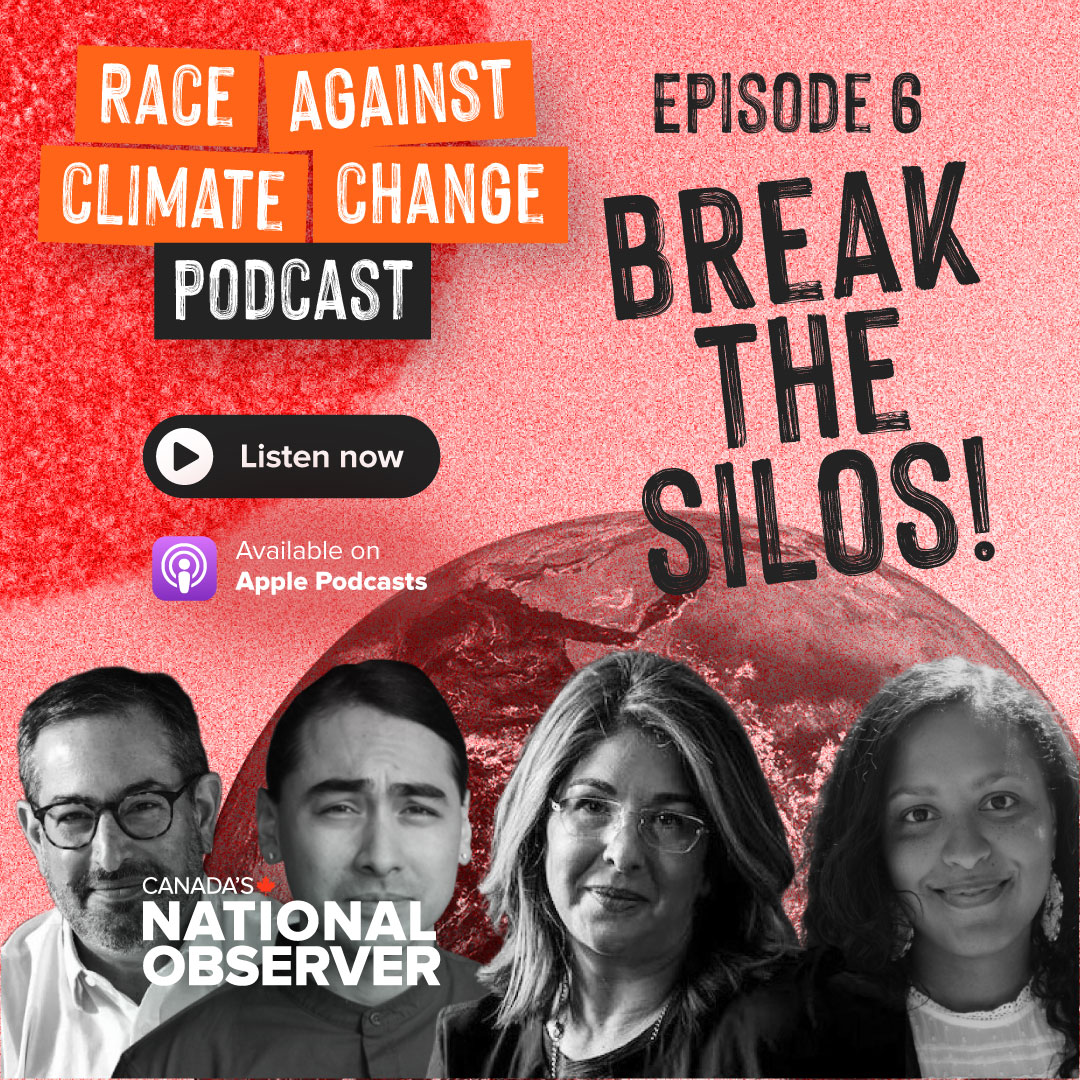Support strong Canadian climate journalism for 2025
The movie theatres can now get back to normal, but while we're waiting to see what happens, there are still streaming offers to enjoy. Including this year's KDocs festival, which shows socially relevant documentaries. They're being streamed from the viff.org site, include two films I review today, and several I've written about before and praised. Those include In the Rumbling Belly of Motherland, about women journalists in Afghanistan, Kímmapiiyipitssini: The Meaning of Empathy, about harm reduction in the drug world and The Magnitude of All Things, which connects personal and environmental fears. You can find more here.
And read what else is new ...
Ascension: 4½ stars
The Gig is Up: 3½
Icahn — The Restless Billionaire: 4
Uncharted: 3
Streamline: 3
The Cursed: 2½
ASCENSION: If you're missing the features about the host country that we usually get during the Olympics, this film will satisfy you. It's an intimate look inside China and reveals a new national psyche than what we've known. "China is a confident global player now," says a business leader. "We are not as easily defeated as we once were." Somebody says the education system has become more westernized. That would be a major change. The film shows many others, some inferring that society itself is becoming more and more Americanized.
Jessica Kingdon, who wrote, directed and partially shot this film, takes us right into many telling scenes. Workers regimented like soldiers. Rampant consumerism. Young men announcing goals for how much money they want to make and by when. Servants being trained because newly rich people want more than luxury; they want a butler like in Downton Abbey. In a class on table manners, people learn about wine and how to use a knife and fork. There are brief glimpses now and then to the poor to remind us that inequality exists and may be growing. Human rights abuses are dismissed as a western lie.

And there's humour, like the factory scene of two women creating a life-sized sex doll. There's no narration to interpret any of this, but Kingdon makes her views clear through observation, editing and juxtaposition. The film has an Academy Award nomination and is part of the KDocs festival. 4½ out of 5
THE GIG IS UP: Way up in importance in our economy, according to this Canada-France documentary by Shannon Walsh. We all know about Uber drivers and various food deliverers, maybe bicycle couriers. They work as freelancers, and as this film so articulately points out, are probably exploited. They don't get benefits like health insurance, set hours, sick days, or more. They may have been attracted to the work because they aren't controlled by bosses and set hours. They are controlled by algorithms and that may be worse. And by reviews from customers, which can range widely. And most likely they're underpaid.
The film visits several workers: a woman in France campaigning for benefits for an injured food deliverer, a man in Nigeria who evaluates dates on his computer all day, a female Uber driver who struggles to pay for gas, a guy in Florida who admits he'd never get a job if he applied in person but can pass himself off as an “African-American Republican” online even though he's white. The film leaves gaps on how all this works, how some companies can be profitable but claim to be losing money and how they can get away with underpaying. It has much that's new, to me at least. Amazon Turk, for instance, one of the biggest gig scenes. People should watch this enlightening film before they're lured. (Part of KDocs and now a nominee for the Canadian Screen Awards.) 3½ out of 5
ICAHN: THE RESTLESS BILLIONAIRE: I haven't seen his name in quite a while, but sometime back he was in the papers regularly pulling off huge business deals and generally coming across as a financial predator. Oliver Stone consulted him when he wrote Wall Street and some of Gordon Gekko's words came right from Carl Icahn. To the effect that managers are running companies for themselves and screwing the shareholders, the little people. Icahn claims, in a new interview that forms the backbone of this documentary, it was that philosophy that drove him in activist fights with Tappan Appliances, Trans World Airlines, Texaco and others.

He did it for the little guy. But he also made over $20 billion doing it, so is he a "shareholder advocate" demanding "accountability for managers" or a vulture? You get arguments for both from people like Bill Gates, journalists and Wall Street watchers. TWA was the one time he became a manager himself. TWA is gone. Texaco filed for bankruptcy after Icahn got involved in one of its deals. So there's drama here. A particularly virulent bit has him and another activist investor, Bill Ackman, yelling insults at each other on live television. The film has great actuality like that, testimonials from his son (who got him to invest in Apple early on), his wife and others and much to power the question the film raises: "Is this capitalism at its best?" (CRAVE) 4 out of 5
UNCHARTED: One of the most successful, awarded and beloved video game series has led to a movie that I found great fun, though pretty ridiculous. It's got elaborate stunts and set pieces that may work in a game but look just too impossible to believe on a big screen. Imagine a string of cargo bales hanging from a plane and one of our heroes jumping from one to the other as it's flying high in the air. Or helicopters flying 500-year-old explorer ships, T-boning one into another at one point. Technically, these scenes are brilliantly created, but you have to suspend a lot of logic and there better be a strong story to compensate.

Well, that's shaky too. Two adventurers (Tom Holland and Mark Wahlberg playing Nate Drake and his mentor Victor Sullivan) go looking for gold that Magellan looted on his round-the-world voyage. It never got to Spain it seems and has never been found. Antonio Banderas, as the scion of a prominent Barcelona family, is also looking for it. They need a pair of jewel-encrusted keys, one purloined from a New York auction house, the other held secretly by a woman associate (rival?) played by Sophia Ali. They open hidden spaces in a bar, in a church and in catacombs. The movie follows a typical video-game trajectory, to cities and continents, on water and in the air, with a snappy pace, color and action. It's got ancient sailing ships that were wrecked but surprisingly not rotted away. But don't nit pick. Holland, fresh off his Spider-Man success, is more than passable, though younger than in the games, and Wahlberg is at his wise-cracking usual. They keep it moving under Ruben Fleischer's direction. (Scotiabank, Marine Gateway and many suburban theaters) 3 out of 5
STREAMLINE: A lone sports movie while the Olympics are on, and fittingly, since it's from Australia, it's focused on a summer event. Levi Miller plays a swimmer who could make it on the national Olympic team if he manages to follow his coach's hectoring and quoting of Carl Jung "to direct our own lives." That's hard for the young man to do because he's haunted by memories of an abusive father (and his loud fights with his mother).

Dad, played by Jason Isaacs, is getting out of jail and wants to reconnect with his son. But the few times they meet are very awkward. There's no connection. The boy is embarrassed when dad gets a low job in a restaurant, puts up with nagging to snap out of it from a usually supportive girlfriend (Laura Gordon) and starts sulking. He gives up swimming and spends time with some dodgy guys he calls "brothers." It takes some emotional scenes ("I'm not scared of you anymore.") and a father's explanation ("Men are made by their mistakes.") to resolve all this. It's not new, fairly melodramatic but also possible and affecting. Writer-director Tyson Wade Johnston drew on his own background as a competitive swimmer to make it credible. (POV and digital availability.) 3 out of 5
THE CURSED: This was called Eight for Silver when it played Sundance last year and that nicely reflects its problems. The ambitions were high, but writer-director Sean Ellis tried to be too arty; the title didn't properly convey what it delivers. This is a werewolf story, after all, a fact that takes a long time to be revealed and is hampered by a conflicting opening scene. While the main story is set in the mid-1800s in rural France, the film starts in the trenches of the First World War. Can't tell you why, though as you watch the film, you may realize you have already learned too much.

The setting is a country manor where a band of Roma migrants claim they actually own the land. It was taken from them. The lord (Alistair Petrie) says buzz off or something like that (everybody uses English accents). He drives them off, the Roma matriarch puts a curse on everybody on his land, a blacksmith is killed and mounted like a scarecrow and appears in many nightmares, and the lord's son disappears. A pathologist (Boyd Holbrook) arrives to investigate because he is familiar with a case something like it from the past. He realizes what's up, warns of a “creature” and the story takes off with scary scenes in the fog, excellent chilly atmosphere, bloody attacks by an icky creature but another misstep. Remember the silver? It was melted and formed into a set of teeth and then buried. It keeps being dug up and is just a dippy distraction. (International Village and suburban theatres.) 2½ out of 5





Comments